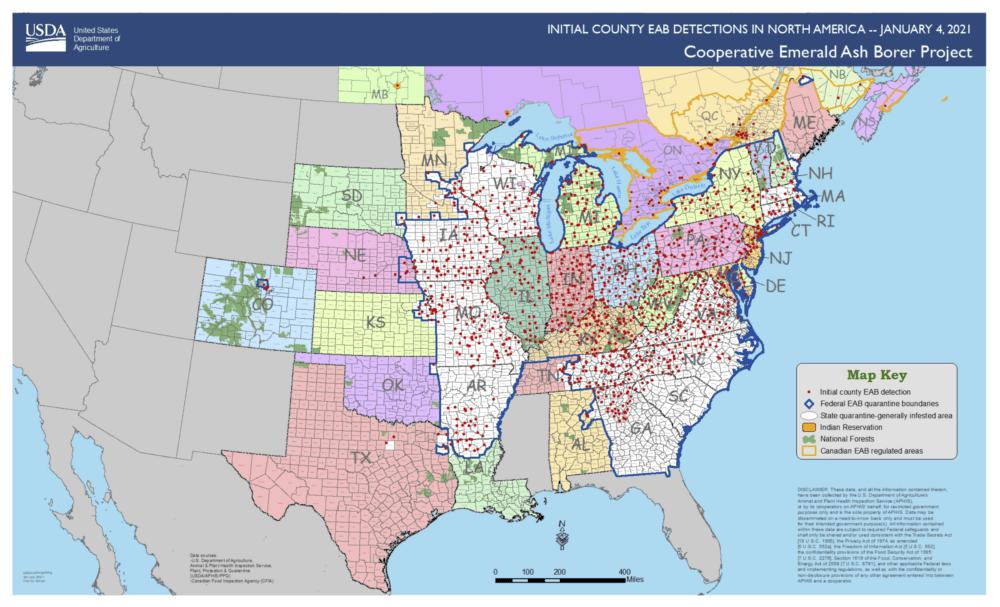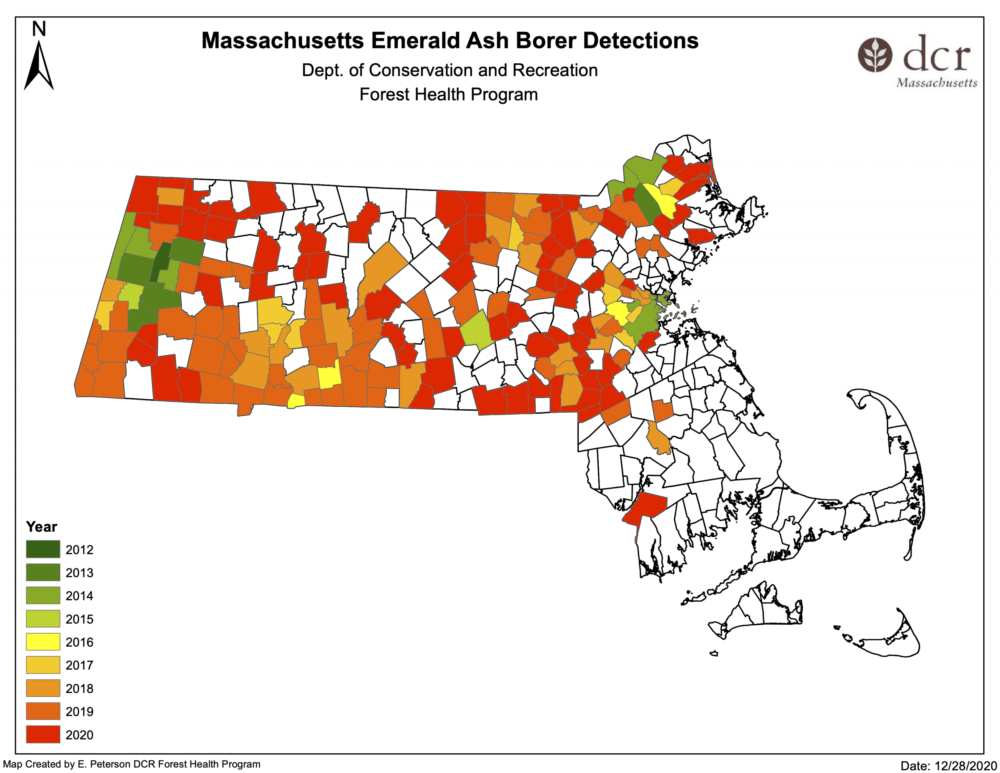Advertisement
Some In New England Unhappy With End Of Emerald Ash Borer Quarantine
Resume
The U.S. government has lifted a quarantine on the emerald ash borer, an invasive insect that's killed many trees in Massachusetts and Connecticut. But critics of the change have been more vocal outside those states.
The emerald ash borer was first discovered in the U.S. in 2002 in Michigan. The federal government soon instituted a quarantine there on ash products, which restricted their movement unless the wood had been treated first.
The quarantine zone spread as the bug infested more states — and with good reason. The insect can kill ash trees within three to five years, said Tawny Simisky, an entomologist at UMass Amherst.
"Adults will lay their eggs on the bark, and those eggs will hatch, and the larvae will bore beneath the bark and feed in the nutrient rich layer," she said. "And so it's that feeding that causes tunneling — which will effectively girdle the ash trees, that leads to their mortality."
In 2012, the emerald ash borer was found in the Berkshires and in Connecticut near Waterbury. It had spread to 31 states by 2018, including all of New England.

That’s when the federal government proposed eliminating the quarantine, which officially ended a couple of weeks ago.
The USDA says the quarantine strategy has been ineffective, and it wants to focus its resources on deploying a natural enemy to kill the ash borer: parasitic wasps.
Simisky explained the approach.
"The wasps essentially lay their eggs, either in or on emerald ash borer eggs or larvae," she said. "And the wasp eggs will hatch, and then the young wasps will kill the emerald ash borer through their own development."
Dave Orwig, who is an ecologist for the Harvard Forest in western Worcester County, said the ash borer has been found nearby, but not in the university's research forest. Still, he said, he thinks the government's decision to lift the ban makes sense in a place like Massachusetts.
"It's throughout the state, so the quarantine is effectively not useful right now," Orwig said. "If I'm in a state like Maine that only has infested ash that we know of in the southern part and the northern part, you'd want to try to continue to slow the spread of those materials."

And in fact, the Maine Forest Service lodged a strong protest against the lifting of the quarantine. The agency wrote a letter to the USDA saying the timing could not be worse, and that the federal government was throwing in the towel.
Tom Doak is the former director of the service, and now leads the Maine Woodland Owners association.
"I understand the concern is that spending a lot of time and effort on something that ultimately will not prevent the spread — because these insects are mobile, and they fly well," Doak said. "And so I think everybody understands they will spread. But buying that time could be absolutely critical."
In early January, Maine issued an emergency order creating a state quarantine on the importation of ash wood, which basically replicates the restrictions of the federal one.
All New England states have policies that either prohibit or discourage out-of-state firewood.
So even though the federal quarantine is over, Simisky, the UMass entomologist, said people still need to do their part.
"This could mean not bringing firewood from Massachusetts with you when you go, in better days, to Maine to camp," she said. "So I think keeping that sort of stuff local, and limiting the spread of potentially infested ash trees — that's still very important."
The ash borer probably can’t be stopped, but between campers doing the right thing and the wasps doing their part, perhaps America’s ash trees have a fighting chance.
This story is a production of New England News Collaborative. It was originally published by New England Public Media on Jan. 25, 2021.
This segment aired on January 28, 2021.